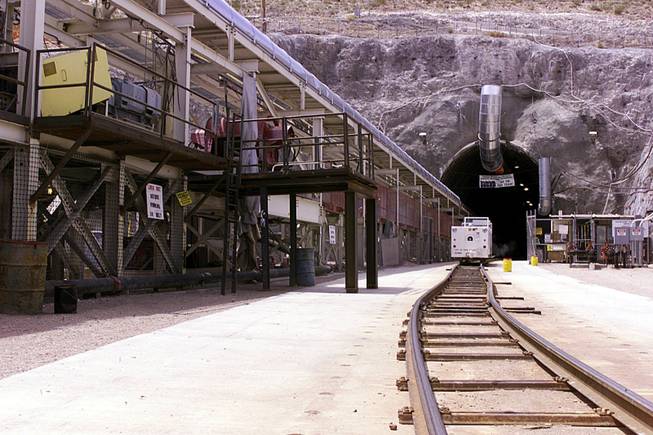
File photo
Yucca Mountain is located about 90 miles northwest of Las Vegas.
Wednesday, March 16, 2011 | 2 a.m.
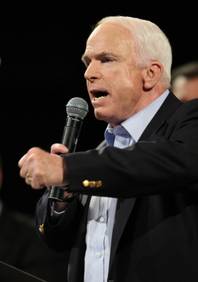
John McCain
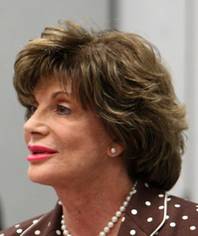
Shelley Berkley
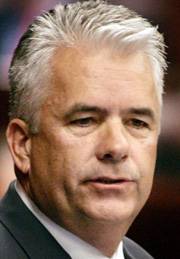
John Ensign
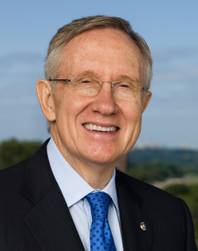
Harry Reid
Sun archives
- Japan’s nuclear meltdown prompts talk of safety, Yucca Mountain’s role (3-13-2011)
- Reid: Solar thermal project near Tonopah to create more than 500 new jobs in Nevada (12-20-2010)
- New solar test zone brightens the future of Las Vegas (7-9-2010)
- Solar research facility planned for Nevada Test Site (7-8-2010)
- State reveals plan to step up solar energy development (6-4-10)
- Obama to zero out Yucca Mountain funding, pull license (2-1-2010)
- Dying Yucca Mountain still has some life (1-30-2010)
- Obama administration: ‘We’re done with Yucca’ (1-29-2010)
- Friday announcement will unveil plans for panel on Yucca alternatives (1-28-2010)
- White House, Energy Department clash over Yucca Mountain cuts (1-14-2010)
- Report: Yucca Mountain costs double other alternatives (12-2-2009)
- Nuclear industry weighs in on nuke dump license (11-16-2009)
- In Nevada, nuclear raises touchy issues (11-14-2009)
- Feds to slash Yucca funds as project maintains life (11-9-2009
- 3 Las Vegans join state Commission on Nuclear Projects (11-5-2009)
As Japan reels from explosions and meltdowns at nuclear reactors damaged by last week’s tsunami, there’s talk in Washington about reining in the United States’ nuclear ambitions — discussions that will have an effect in Nevada.
Early cries for a moratorium on nuclear plant construction — some from Washington’s most vocal proponents of nuclear energy — suggest the disaster is going to affect the energy debate at home.
For Nevada, ending or significantly scaling back nuclear development could either bring about the demise of or facilitate renewable energy development. It could also do the same for the proposed Yucca Mountain nuclear waste repository.
Nuclear energy has been enjoying a renaissance in Washington, especially since Republicans scored major gains in the 2010 elections.
In a political climate where the energy debate has been dominated by competing cries of “cap-and-trade” or “drill, baby, drill,” nuclear energy was the one place where Republicans and the Obama administration agreed that investment and development was essential.
Because it provided common ground, nuclear energy has appeared to be the best means to balance competing interests on energy investment. Although too divided to hope for a comprehensive bill, lawmakers hoped that nuclear energy could facilitate compromises on federal loan guarantees — such as those for a planned solar plant in Tonopah — and establishing a national clean energy standard.
“If there was any hope for a clean energy standard, I don’t think you can get there without nuclear in the mix,” said Kenneth Green, an energy analyst with the American Enterprise Institute, a conservative think tank in Washington.
The trade-off between nuclear energy and renewable energy — both considered “clean” — is financial as well as political.
Nuclear power plants aren’t cheap: It costs about $10 billion to build one, meaning government-backed loans are essential to their construction. That’s a far steeper price than most renewable energy projects, but nuclear plants produce far more energy than your average solar or wind farm.
Scuttling funding for nuclear development doesn’t translate into a windfall for renewable energy projects, however — especially as lawmakers are looking to reduce federal spending. Also, nuclear’s backers aren’t going to pull the plug.
“I think it’s important to wait and see ... it’s not a reason for any snap decisions on anything,” said Sen. John McCain of Arizona, a nuclear energy proponent.
“I don’t think right after a major environmental catastrophe is a very good time to be making American domestic policy,” Senate Minority Leader Mitch McConnell said.
But the political process doesn’t always follow such logic. The United States all but abandoned nuclear energy more than 30 years ago after the meltdown of a reactor at Three Mile Island in Pennsylvania. The events in Japan have exceeded the severity of that catastrophe, and public safety officials are bracing for potentially more fires and explosions that could release more radioactivity into the air.
“You would have to be out of your mind to witness what we are seeing happening in Japan and still be urging this country to move toward nuclear energy with all deliberate haste,” Nevada Rep. Shelley Berkley said. “This should be a wake-up call to us: If we can’t do it better and learn from their mistakes, we’d better seriously look at alternative energy.”
Part of the concern for many lawmakers speaking out against nuclear energy comes from Japan’s reputation for technological advancement, and a nuclear industry with the best safeguards. The nuclear reactors in Japan had multiple backup systems, all of which failed under the tsunami’s sudden and powerful waves.
That’s raising the question for many about how safe U.S. reactors are, and in Nevada, about just how safe the Yucca Mountain site is — a concern that’s been somewhat eclipsed by worries about safe transportation in recent years.
“Some people who’ve long wanted to dump America’s nuclear waste in Nevada will use the Japanese disaster as a reason to tote it to Nevada,” and get it out of their own backyards, said Daniel Weiss, an energy expert at the Center for American Progress. He noted that opinion polls show even Americans who favor the expansion of nuclear power usually don’t want it near them.
In Japan, “the site is failing and could release a lot of radioactivity if it fails completely ... they’re just a tornado, a hurricane and flood away from having a huge environmental disaster,” he said.
According to the U.S. Geological Survey, Nevada ranks fourth in the nation for seismic activity — a factor in the design of the Yucca Mountain repository, as it is in the design and construction of nuclear facilities across the country.
But as the Japanese reactors illustrate, even the best designs can’t withstand every force majeure.
Yucca Mountain hasn’t been officially funded since President Barack Obama took control of federal budget requests, but the site is progressing through a certification process with the Nuclear Regulatory Commission. In the past few weeks, House Republicans have also taken steps toward reviving, or at least preserving, the site as a dump, including a prohibition on using federal dollars to scale down site activity in preparation for storage or reprocessing of spent fuel.
Most of Nevada’s lawmakers, in both parties, have opposed efforts to develop the site.
Senate Majority Leader Harry Reid has maintained that Yucca is dead since long before the Japanese nuclear crisis. But when asked whether fears of similar accidents in the United States would change the energy debate enough to remove it from the political dialogue entirely, Reid is tight-lipped. It’s a stance that likely has more to do with not wanting to prognosticate the future of renewable energy than any wavering on Yucca Mountain.
Without nuclear, potential energy deals of all kinds seem less probable. But there’s far less incentive to stop the energy discussion at a time when the country is struggling with rising oil and gas prices, the result of turmoil in the Middle East.
A group of Republican senators, including Nevada’s John Ensign, introduced what they called a budget-neutral compromise to develop both the country’s carbon-fuel resources — including opening up the Arctic National Wildlife Refuge to drilling — and use profits to support fledgling renewable energy projects.
“We would pay for renewable energy development with our own money and not with China, Saudi Arabia, and Russia’s, who own our outstanding debt,” Ensign said.
Although a proposal like that could win support on the argument it increases U.S. energy independence and national security, it does so at the expense of the clean-and-green ethos behind the renewable energy movement — making it a trade-off many Democrats probably wouldn’t support.
It’s potentially another setback for a fledgling renewables sector that Nevada’s depending on for an economic boom, but that’s in desperate need of government support.
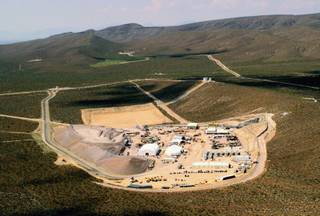
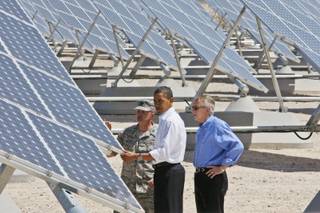

Join the Discussion:
Check this out for a full explanation of our conversion to the LiveFyre commenting system and instructions on how to sign up for an account.
Full comments policy